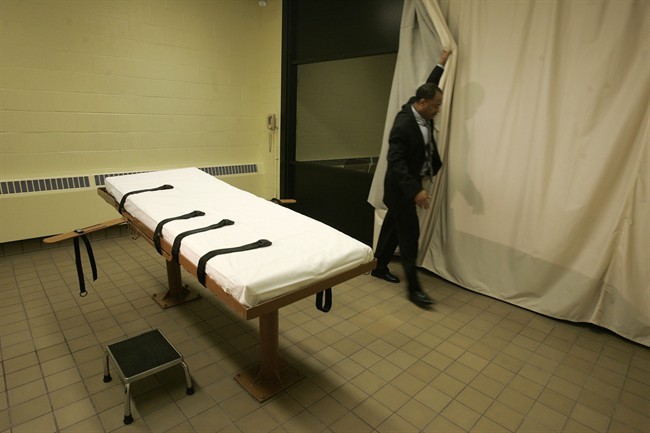COLUMBUS, Ohio – A U.S. federal judge on Thursday declined to stop the upcoming execution of a condemned child killer over concerns raised by defence attorneys over Ohio’s new, never-tried lethal injection processes.

Ronald Phillips’ lawyers sued Oct. 31 to stop his execution on the grounds that Ohio had delayed the announcement of its policy so long it didn’t leave enough time to fully investigate the method. They also question the Department of Rehabilitation and Correction’s decision to allow the prisons director to delegate execution responsibilities to other individuals.
Judge Gregory Frost said he understands why Phillips does not trust the state to follow its own execution policies based on problems in the past. But he said Phillips did not prove the state’s new policy is unconstitutional.
Phillips, 40, is scheduled to die Nov. 14 for raping and killing Sheila Marie Evans, the 3-year-old daughter of his girlfriend, after a long period of abusing the girl.
An attorney for Ohio said the state is committed to carrying out the execution in a humane, dignified and constitutional manner and understands that commitment.
The agency switched to two new drugs because it couldn’t obtain a supply of its former execution drug, pentobarbital, from a specialty pharmacy that mixes individual doses for patients. The agency had considered using a compounding pharmacy after its supply of federally regulated pentobarbital expired in September.
Instead, the state plans to use an intravenous combination of midazolam, a sedative, and hydromorphone, a painkiller, to put Phillips to death.
- Canada’s most wanted list: Toronto suspect in fatal shooting at No. 1
- Gas station clerk stabbed several times during violent attack at Ultramar in Montreal
- Man acquitted in Tina Fontaine murder found dead, says her aunt
- Canadians should expect politicians to support right to bail, Virani’s office says
Those drugs already are included in Ohio’s never-tried backup execution method, which requires them to be injected directly into an inmate’s muscle. No state has put a prisoner to death with that combination of drugs.
In video testimony from the prison housing death row at the Nov. 1 hearing, Phillips said a doctor could not find veins in his arms during a pre-execution check-up in October.
Gov. John Kasich is weighing clemency for Phillips, though the state Parole Board’s unanimously recommended against mercy Oct. 24.
Phillips’ lawyers have pushed for mercy, arguing he was raped and beaten by his late father as a child and grew up in a chaotic, filthy environment.
The state says Phillips long denied suffering such abuse and raised it only as his execution became imminent.



Comments